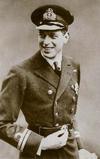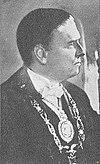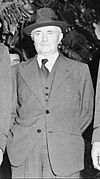| Millennium: | 2nd millennium |
|---|---|
| Centuries: | |
| Decades: | |
| Years: |
|
| Gregorian calendar | 1942 MCMXLII |
| Ab urbe condita | 2695 |
| Armenian calendar | 1391 ԹՎ ՌՅՂԱ |
| Assyrian calendar | 6692 |
| Bahá'í calendar | 98–99 |
| Balinese saka calendar | 1863–1864 |
| Bengali calendar | 1349 |
| Berber calendar | 2892 |
| British Regnal year | 6 Geo. 6 – 7 Geo. 6 |
| Buddhist calendar | 2486 |
| Burmese calendar | 1304 |
| Byzantine calendar | 7450–7451 |
| Chinese calendar | 辛巳年 (Metal Snake) 4638 or 4578 — to — 壬午年 (Water Horse) 4639 or 4579 |
| Coptic calendar | 1658–1659 |
| Discordian calendar | 3108 |
| Ethiopian calendar | 1934–1935 |
| Hebrew calendar | 5702–5703 |
| Hindu calendars | |
| - Vikram Samvat | 1998–1999 |
| - Shaka Samvat | 1863–1864 |
| - Kali Yuga | 5042–5043 |
| Holocene calendar | 11942 |
| Igbo calendar | 942–943 |
| Iranian calendar | 1320–1321 |
| Islamic calendar | 1360–1361 |
| Japanese calendar | Shōwa 17 (昭和17年) |
| Javanese calendar | 1872–1873 |
| Juche calendar | 31 |
| Julian calendar | Gregorian minus 13 days |
| Korean calendar | 4275 |
| Minguo calendar | ROC 31 民國31年 |
| Nanakshahi calendar | 474 |
| Thai solar calendar | 2485 |
| Tibetan calendar | 阴金蛇年 (female Iron-Snake) 2068 or 1687 or 915 — to — 阳水马年 (male Water-Horse) 2069 or 1688 or 916 |
1942 (MCMXLII) was a common year starting on Thursday of the Gregorian calendar, the 1942nd year of the Common Era (CE) and Anno Domini (AD) designations, the 942nd year of the 2nd millennium, the 42nd year of the 20th century, and the 3rd year of the 1940s decade.
Events
Below, the events of World War II have the "WWII" prefix.
January
- January 1 – WWII:
- The Declaration by United Nations is signed by China, the United Kingdom, the United States, the Soviet Union, and 22 other nations, in which they agree "not to make any separate peace with the Axis powers".
- the United States and Philippines troops fight the Battle of Bataan against Japanese forces.
- January 2 – WWII:
- Japanese warplanes bomb Manila, Philippines.
- The United States Eighth Air Force is activated in Savannah, Georgia.
- January 7 – WWII:
- Operation Typhoon, the German attempt to take Moscow, fails.
- The siege of the Bataan Peninsula begins.
- January 11 – WWII:
- Dutch East Indies campaign: Japan declares war on the Netherlands and invades the Dutch East Indies.
- Malayan Campaign: The Japanese capture Kuala Lumpur, the capital of the Federated Malay States.
- January 13
- Heinkel test pilot Helmut Schenk becomes the first person to escape from a stricken aircraft with an ejection seat.
- Henry Ford patents a plastic automobile which would be 30% lighter than a regular car.
- January 14
- WWII: "Second Happy Time", the German submarine commanders' name for Operation Paukenschlag (Operation Drumbeat), the phase in the Battle of the Atlantic during which German submarines are successful in attacking Allied shipping along the East Coast of the United States, opens early this morning when German submarine U-123 under the command of Reinhard Hardegen sinks a Norwegian tanker within sight of Long Island, before entering New York Harbor and sinking a British tanker off Sandy Hook the following night, as she leaves heading south along the coast. U-boat successes continue until around June 12.
- The Sikorsky R-4 first flies in the United States; it will become the first mass-produced helicopter.
- January 16 – American film actress Carole Lombard and her mother are among all 22 killed aboard TWA Flight 3 when the Douglas DC-3 plane crashes into Potosi Mountain near Las Vegas while she is returning from a tour to promote the sale of war bonds.
- January 19 – WWII:
- Japanese forces invade Burma.
- The following Commands of the United States Eighth Air Force are established: VIII Bomber Command initially at Langley Field in Virginia, and VIII Fighter Command at Selfridge Field in Michigan.
- January 20 – The Holocaust: Nazis at the Wannsee Conference in Berlin decide that the "Final Solution (Endlösung) to the Jewish problem" is deportations to extermination camps.
- January 21 – WWII: Erwin Rommel launches his new offensive in Cyrenaica.
- January 23 – WWII: The Battle of Rabaul begins.
- January 25 – WWII: Thailand declares war on the United States and the United Kingdom.
- January 26 – WWII: The first American forces arrive in Europe, landing in Northern Ireland.
- January 31 – WWII: Malayan Campaign: The last organized Allied forces leave British Malaya, ending the 54-day campaign, and the Johor–Singapore Causeway is severed.
February
- February – C. S. Lewis's The Screwtape Letters is first published in book format, in England.
- February 1 – WWII:
- The Kriegsmarine introduces the M4 (German Navy 4-rotor) Enigma machine for U-boat traffic, blinding Allied cryptanalysts to their radio signals for most of the year.
- The Command staff of the United States Eighth Air Force reaches England.
- Mao Zedong makes a speech on "Reform in Learning, the Party and Literature", starting the Yan'an Rectification Movement in the Communist Party of China.
- February 3 – WWII: Rommel suspends his offensive in Cyrenaica.
- February 7 – United States Maritime Commission fleet operations are transferred to the War Shipping Administration (lasting until September 1, 1946).
- February 8
- António Óscar Carmona is elected president of Portugal.
- WWII: the Top United States military leaders hold their first formal meeting, to discuss American military strategy in the war.
- Daylight saving time goes into effect in the United States.
- February 9 – The ocean liner SS Normandie catches fire while being converted into the troopship USS Lafayette (AP-53) for WWII at Pier 88 in New York City; she capsizes early the following morning.
- February 11 – Operation Cerberus: A flotilla of Kriegsmarine ships dash from Brest through the English Channel to northern ports; the British fail to sink any of them.
- February 15 – WWII: Battle of Singapore – Singapore surrenders to Japanese forces.
- February 18 – WWII:
- Japanese occupation of Singapore: Sook Ching – The Imperial Japanese Army begins the systematic extermination of perceived hostile elements among Chinese Singaporeans.
- More than 200 American sailors die in Newfoundland when USS Truxtun runs aground near Chambers Cove and USS Pollux runs aground at Lawn Point.
- February 19 – WWII:
- Bombing of Darwin: Japanese warplanes bomb Darwin, Australia.
- A returning Japanese fighter plane crashes on Melville Island (Australia) and its pilot, Hajime Toyoshima, becomes the first Japanese captured on Australian soil, when indigenous resident Matthias Ulungura takes him prisoner.
- United States President Franklin D. Roosevelt signs Executive Order 9066, allowing the United States military to define areas as exclusionary zones. These zones affect the Japanese on the West Coast, and Germans and Italians primarily on the East Coast.
- February 19–23 – WWII: Battle of Sittang Bridge – British forces retreat to the Sittaung River.
- February 20 – WWII: Lieutenant Edward O'Hare becomes America's first U.S. Navy flying ace of the war.
- February 22 – WWII: General George Marshall transmits a direct order to General MacArthur in President Roosevelt's name, ordering MacArthur himself to turn over command of the Philippines to a subordinate, and report to Australia to assume command of the large American force being built up there. The orders are worded to allow MacArthur to choose the exact moment of his departure; for various reasons, he will not leave until March 11.
- February 23 – WWII: Japanese submarine I-17 fires 17 high-explosive shells toward an oil refinery near Santa Barbara, California, causing little damage.
- February 24
- Struma disaster: MV Struma, carrying Jewish refugees from Axis-allied Romania to British-administered Palestine, is torpedoed and sunk by Soviet submarine Shch-213, killing about 791 men, women, and children, with only 1 survivor.
- Propaganda: The Voice of America begins broadcasting.
- February 25 – "Battle of Los Angeles": Over 1,400 AA shells are fired at an unidentified, slow-moving object (probably a meteorological balloon) in the skies over Los Angeles. The appearance of the object triggers an immediate wartime blackout over most of Southern California, with thousands of air raid wardens being deployed throughout the city. At least 5 deaths are related to the incident. Despite the several hour barrages no planes are downed.
- February 26
- The worst coal dust explosion to date, in Honkeiko, China, claims 1,549 lives.
- The United States Advertising Council, a predecessor of Ad Council founded.
- The 14th Academy Awards ceremony is held in Los Angeles; How Green Was My Valley wins Best Picture.
- February 27 – WWII: Battle of the Java Sea: An allied (ABDA) task force of 14 vessels under Dutch command, trying to stem a Japanese invasion of the Dutch East Indies, is defeated by a 19-vessel Japanese task force in the Java Sea; 2.300 sailors die, including the commander, Admiral Karel Doorman; Japanese attain naval hegemony in East-Asia.
March
- March – Construction begins on the Badger Army Ammunition Plant, the largest in the United States during WWII.
- March 6 – Yugoslav Partisans, operating in Nazi-occupied Serbia, assassinate Đorđe Kosmajac in Belgrade.
- March 9 – WWII: Executive order 9082 (February 28, 1942) comes into effect, reorganizing the United States Army into three major commands: Army Ground Forces, Army Air Forces, and Services of Supply, later redesignated Army Service Forces, with Henry H. Arnold as Commanding General of the United States Army Air Forces.
- March 11 – WWII: Douglas MacArthur's escape from the Philippines – U.S. General Douglas MacArthur, his family and key members of his staff are evacuated by PT boat, under cover of evening darkness, from Corregidor in the Philippines. Command of U.S. forces in the Philippines passes to Major General Jonathan M. Wainwright.
- March 15 – WWII: Dünamünde Action: 1,900 central European Jews are shot dead north east of Riga, 1,840 are killed on the 26th.
- March 16 – WWII: New Zealand and Australia declare war on Thailand.
- March 17 – The Holocaust: Operation Reinhard – The Nazi German Bełżec extermination camp opens in occupied Poland, about 1 km south of the railroad station at Bełżec in the Lublin district of the General Government. At least 434,508 people are killed here up to December 1942.
- March 18 – Franklin D. Roosevelt, President of the United States, signs Executive Order 9102, creating the War Relocation Authority (WRA), which becomes responsible for the internment of Americans of Japanese and, to a lesser extent, German and Italian descent, many of them legal citizens.
- March 20 – WWII: After being forced to flee the Philippines, U.S. General Douglas MacArthur announces (in Terowie, South Australia), "I came through and I shall return."[1]
- March 22 – WWII: Second Battle of Sirte in the Mediterranean Sea – Escorting warships of a British convoy to Malta ward off a much more powerful Regia Marina (Italian Navy) squadron, north of the Gulf of Sirte.
- March 23 – WWII: The Germans burn down the Ukrainian village of Yelino (Koriukivka Raion), killing 296 civilians.[2]
- March 24 – The evacuation of Polish nationals from the Soviet Union begins. It is conducted in two phases: until April 5; and between August 10 and 30, 1942, by sea from Krasnovodsk to Pahlavi (Anzali), and (to a lesser extent) overland from Ashkabad to Mashhad. In all, 115,000 people are evacuated, 37,000 of them civilians, 18,000 children (7% of the number of Polish citizens originally exiled to the Soviet Union).[3]
- March 25–26 – The Holocaust: First mass transport of Jews to Auschwitz concentration camp, 997 women and girls from Poprad transit camp in the Slovak Republic.
- March 28 – WWII:
- St Nazaire Raid (Operation Chariot) – British Commandos raid Saint-Nazaire on the coast of Western France, to put its dockyard facilities out of action.
- Bombing of Lübeck in World War II: St. Mary's Church, Lübeck is destroyed by an Allied bombing raid.
- March 29 – WWII: Following a coup d'état, the Free Republic of Nias is proclaimed by a group of freed Nazi German prisoners in the Indonesian island of Nias; the republic exists for less than a month until the island is fully occupied by Japanese troops.
- March 31 – WWII: Battle of Christmas Island – Japanese troops occupy Christmas Island without resistance, following a mutiny by British Indian Army troops against their British officers.
April
- April
- The Holocaust: the Nazi German extermination camp Sobibór opens in occupied Poland, on the outskirts of the town of Sobibór. Between April 1942 and October 1943, at least 160,000 people are killed here.
- 77 Uzbek prisoners of war held at Amersfoort concentration camp in the occupied Netherlands are shot by Nazi German guards, 24 of their compatriots having previously died there as a result of forced starvation.[4]
- April 3 – WWII: Japanese forces begin the last phase of the Battle of Bataan, an all-out assault on the United States and Filipino troops on the Bataan Peninsula.
- April 5 – WWII: Easter Sunday Raid – Aircraft of the Japanese Navy attack Colombo, Ceylon (Sri Lanka). Royal Navy cruisers HMS Cornwall and HMS Dorsetshire are sunk southwest of the island.
- April 9 – WWII:
- The Bataan Peninsula falls, and the Bataan Death March begins.
- The Japanese Navy launches an air raid on Trincomalee in Ceylon (Sri Lanka); the Royal Navy aircraft carrier HMS Hermes (95) and Royal Australian Navy destroyer HMAS Vampire are sunk off the country's East Coast.
- April 10 – The Holocaust: Construction of the Nazi German extermination camp Treblinka II commences in occupied Poland near the village of Treblinka. Between July 23, 1942, and October 1943, around 850,000 people are killed here,[5] more than 800,000 of whom are Jews.[6]
- April 12 – Disney's Bambi is released in theaters everywhere.
- April 13 – The United States Federal Communications Commission's minimum programming time required of television stations is cut from 15 hours to 4 hours a week during the war.
- April 14
- WWII: British submarine HMS Upholder is probably sunk by Axis forces in the Mediterranean.
- WWII: German submarine U-85 is sunk by USS Roper off North Carolina.
- April 15 – WWII: Award of the George Cross to Malta: King George VI awards the George Cross to the island of Malta to mark the Siege of Malta, saying, "To honor her brave people I award the George Cross to the Island Fortress of Malta, to bear witness to a heroism and a devotion that will long be famous in history" (from January 1 to July 24, there is only one 24-hour period during which no bombs fall on this tiny island).
- April 17 – WWII: Henri Giraud, the French commander captured in 1940, escapes from Königstein Fortress.
- April 18 – WWII: Doolittle Raid: A small force of B-25 Mitchell bomber aircraft, commanded by then-Lieutenant Colonel James "Jimmy" Doolittle bomb Tokyo, Japan.
- April 23
- WWII: Exeter becomes the first historic English city bombed as part of the Baedeker Blitz, in retaliation for the British bombing of Lübeck.
- Exeter-born William Temple is enthroned as Archbishop of Canterbury.
- April 25 – Princess Elizabeth registers for war service in the U.K.
- April 26 – WWII: The Reichstag meets for the last time, dissolving itself and proclaiming Adolf Hitler the "Supreme Judge of the German People", granting him the power of life and death over every German citizen.
- April 27
- WWII: A national plebiscite is held in Canada on the issue of conscription.
- The Jewish Star of David is required wearing for all Jews in the Netherlands and Belgium; Jews in other Nazi-controlled countries have already been wearing it.
- April 29 – WWII: An explosion at a chemical factory in Tessenderlo, Belgium leaves 200 dead and 1,000 injured.
May
- May – Operation Pluto: The plan to construct oil pipelines under the English Channel, between England and France, is tested in the River Medway.
- May 3–4 – WWII: Tulagi is invaded by Japanese forces in the British Solomon Islands of the South Pacific, as part of Operation Mo.
- May 5 – WWII: Battle of Madagascar (Operation Ironclad) begins when British forces land on the Vichy French colony of Madagascar. On May 7 the northern city of Diego Suarez surrenders.
- May 7 – WWII: On Corregidor, the last American and Filipino forces in the Philippines under command of 2LT Robert L. Obourn (92nd Coast Artillery Regiment, G Battery) from Fort Mills, surrender to the Japanese as directed by LTG Jonathan M. Wainwright, the overall commander.[7][8]
- May 8 – WWII:
- The Battle of the Kerch Peninsula: The German 11th Army begins Operation Trappenjagd (Busted Hunt) and destroys the bridgehead of the three Soviet Armies (44th, 47th, and 51st) defending the Kerch Peninsula, in the eastern part of the Crimea.[9]
- The Battle of the Coral Sea (first battle in naval history where 2 enemy fleets fight without seeing each other's fleets) ends in an Allied victory.
- The Battle of the Kerch Peninsula: German and Romanian forces launch Unternehmen Trappenjagd (Operation Busted Hunt), aiming at defeating the Soviet Crimean Front defending the Kerch Peninsula. The battle ends in Axis victory.
- May 8/9 – WWII: At night, gunners of the Ceylon Garrison Artillery on Horsburgh Island in the Cocos Islands mutiny. The mutiny is crushed, and 3 soldiers are executed (the only British Commonwealth soldiers to be executed for mutiny during the Second World War).
- May 12 – WWII:
- May 14 – Aaron Copland's Lincoln Portrait is performed for the first time, by the Cincinnati Symphony Orchestra.
- May 15 – WWII: In the United States, a bill creating the Women's Auxiliary Army Corps (WAAC) is signed into law.
- May 20 – The first African-American seamen are taken into the United States Navy.
- May 21 – WWII: Mexico declares war against Nazi Germany, after the sinking of the Mexican tanker Faja de Oro by German submarine U-160 off Key West.
- May 26 – WWII:
- Battle of Bir Hakeim: The Free French and British troops slow the German advance in North Africa.
- The Anglo-Soviet Treaty of 1942, to help establish a military and political alliance between the USSR and the British Empire, is signed in London by foreign Secretary Anthony Eden and Soviet foreign minister Vyacheslav Molotov.
- May 27 – WWII: Operation Anthropoid: Czech paratroopers attempt to assassinate Reinhard Heydrich in Prague, and succeed in wounding him.
- May 29 – Thai spelling reform of 1942 is initiated by the government of Prime Minister Field Marshal Plaek Phibunsongkhram with his office announcing a simplification of the Thai alphabet. The announcement is published in the Royal Gazette on June 1. The reform is canceled by the government of Khuang Aphaiwong on August 2, 1944.
- May 30–31 – WWII: Bombing of Cologne – British RAF Bomber Command's "Operation Millennium", its first "1,000 bomber raid", with associated fires make 13,000 families homeless and kills around 475 people, mostly civilians; 3,330 non-residential buildings are destroyed.
- May 31–June 1 – WWII: Attack on Sydney Harbour: Japanese midget submarines infiltrate Sydney Harbour in Australia, in an attempt to attack Allied warships.
June
.jpg)
June 4: The Japanese aircraft carrier Hiryū under attack by US aircraft at the Battle of Midway
- June 1
- WWII: Mexico declares war on Germany, Italy, and Japan.
- The Grand Coulee Dam is finished on the Columbia River.
- June 4 – WWII: Reinhard Heydrich succumbs to wounds sustained on May 27, from Czechoslovakian paratroopers acting in Operation Anthropoid.
- June 5 – The United States declares war on Bulgaria, Hungary and Romania.
- June 4–June 7 – WWII: Battle of Midway: The Japanese naval advance in the Pacific is halted.
- June 7 – WWII: Japanese forces invade the Aleutian Islands (the first invasion of American soil in 128 years).
- June 8 – WWII: Attack on Sydney Harbour: The Australian cities of Sydney and Newcastle are shelled by Japanese submarines. The eastern suburbs of both cities are damaged, and the east coast is blacked out.
- June 9 – WWII: Nazis burn the Czech village of Lidice, in reprisal for the killing of Reinhard Heydrich.
- June 10 – WWII: The Gestapo massacres 173 male residents of Lidice, Czechoslovakia in retaliation for the killing of Reinhard Heydrich.
- June 12 – The Holocaust: On her 13th birthday, Anne Frank makes the first entry in her new diary.
- June 13 – WWII: The United States opens its Office of War Information, a propaganda center.
- June 18 – WWII: The SS surrounds the church where Jan Kubiš and Jozef Gabčík, the assassins of Reinhard Heydrich, are hiding. Kubiš is fatally wounded in the ensuing shootout, and Gabčík commits suicide to avoid capture.
- June 23 – The experimental early-type nuclear reactor L-IV has an accident, becoming the first nuclear accident in history and consisting of a steam explosion and reactor fire in Leipzig.
- June 28 – WWII: The Germans launch Case Blue, Army Group South's drive to Stalingrad and the Baku Oil fields.
- June 29 – WWII: The German Eleventh Army under Erich von Manstein takes Sevastopol, although fighting rages until July 9.
July
- July – The Holocaust: Inmates of Westerbork transit camp in the occupied Netherlands begin to be shipped to Nazi extermination camps. From now until 1944 around 107,000, mostly Jewish, from here will be killed.
- July 1–July 27 – WWII: First Battle of El Alamein: British forces prevent a second advance by Axis forces into Egypt.
- July 3 – WWII: Guadalcanal, occupied only by aborigines, falls to the Japanese Naval construction force deployed to construct an airfield on the island.
- July 4 – WWII in the European Theater of Operations:
- Twenty-four ships are sunk by German bombers and submarines after Convoy PQ 17 to the Soviet Union is scattered in the Arctic Ocean to evade the German battleship Tirpitz.
- The United States Eighth Air Force inauspiciously flies its first mission in Europe, using borrowed British planes, and bombs targets in the Netherlands, such as De Kooy Airfield, attached to the Den Helder Naval Base. Three of six aircraft return;[10] For this mission, Captain Charles C. Kegelman is the first member of the Force to be awarded the U.S. Distinguished Flying Cross.[11]
- July 6 – The Holocaust: Anne Frank's family goes into hiding in an attic above her father's office in an Amsterdam warehouse.
- July 8 – Turkish prime minister Refik Saydam dies while working in the office. For one day he is succeeded by Ahmet Fikri Tüzer.
- July 9 – Şükrü Saracoğlu forms the new (13th) government in Turkey.
- July 10 – An aircraft and rolling stock brand, Bombardier founded in Quebec, Canada.
- July 12 – Tim Rowett was born.
- July 13 – WWII: U-boats sink 3 more merchant ships in the Gulf of St. Lawrence.
- July 14 – WWII:
- Bastille Day Gaullist demonstrations in Vichy France; 2 women are shot dead by members of the fascist French Popular Party (PPF) in Marseille.
- Germany introduces the Ostvolk Medal for Soviet personnel in the Wehrmacht.
- July 16
- The Holocaust: By order of the Vichy France government headed by Pierre Laval, French police officers round-up 13,000–20,000 Jews and imprison them in the Winter Velodrome.
- Georges Bégué and others escape from the Mauzac prison camp.
- July 18 – WWII: The Germans test fly the Messerschmitt Me 262 (using only its jet engines) for the first time.
- July 19 – WWII: Battle of the Atlantic: German Grand Admiral Karl Dönitz orders the last U-boats to withdraw from there the United States Atlantic coast positions, in response to an effective American convoy system.
- July 21 – WWII: The Japanese establish a beachhead on the north coast of New Guinea in the Buna-Gona area; a small Australian force begins a rearguard action on the Kokoda Track campaign.
- July 22 – The Holocaust: The systematic deportation of Jews from the Warsaw Ghetto begins.
- July 23 – The Holocaust: The gas chambers at Treblinka extermination camp begin operation, killing 6,500 Jews newly arrived from the Warsaw Ghetto.
- July 29 – The Presidium of the Supreme Soviet of the Soviet Union institutes the Order of Suvorov and Order of Kutuzov and reinstates the Order of Alexander Nevsky.
- July 30 – WWII:
- WAVES (Women Accepted for Volunteer Emergency Service), the United States Naval Reserve (Women's Reserve), is signed into law.
- The SS Robert E. Lee is sunk in the Gulf of Mexico by U-166, which is itself sunk by the escorting patrol craft.
- July 31 – The Oxford Committee for Famine Relief (Oxfam) is founded in England.
August
- August 4 – WWII: Operation Letica: An assassination attempt on Serbian fascist Minister of Finance Dušan Letica, by a group Yugoslav Resistance fighters, fails.
- August 7 – WWII: Guadalcanal Campaign – The U.S. Navy and the U.S. Marine Corps begin the first American offensive of the war, with an amphibious landing on the island of Guadalcanal in the Solomon Islands.
- August 8
- WWII: Allied North Atlantic convoy SC 94 loses 10 ships, as the first to be heavily attacked by U-boats resuming mid-Atlantic wolf pack attacks, through the climactic winter of 1942/43.[12]
- WWII: In Washington, D.C., six German saboteurs are executed for their role in the failed mission Operation Pastorius (2 others are cooperative and receive sentences of life imprisonment instead, being freed a few years after the end of the war).
- August 9
- Indian leader Mohandas Gandhi is arrested in Bombay, by British forces.
- Start, led by the goalkeeper Nikolai Trusevich, play football against the German Luftwaffe team Flakelf in Nazi-occupied Kyiv. Against all odds, they win 5–3. Eight of them are later arrested and tortured, and at least four are killed.
- Leningrad première of Shostakovich's Symphony No. 7, with the city still under siege.
- August 11 – Hedy Lamarr's and her friend George Antheil's frequency-hopping system for radio-controlled torpedoes is granted a patent under US Patent 2,292,387.[13] In 1962 (at the time of the Cuban missile crisis), an updated version of their design will at last appear on Navy ships.[14]
- August 13 – A Quit India resolution is passed by the Bombay session of the All India Congress Committee (AICC), which leads to the start of a historical civil disobedience movement across India.
- August 15 – WWII: American tanker Ohio reaches Malta, as part of the convoy of Operation Pedestal.
- August 16
- Polish-Jewish teacher Janusz Korczak follows a group of Jewish children into the Treblinka extermination camp.
- U.S. Navy blimp L-8 (Flight 101) comes ashore near San Francisco, eventually coming down in Daly City (the crew is missing).
- August 17 – WWII: Heavy bombers of the U.S. Eighth Air Force, based in England, conduct their first raid against occupied France.
- August 19 – WWII: Dieppe Raid: Allied forces raid Dieppe, France.
- August 20 – Plutonium is isolated for the first time, at the Metallurgical Laboratory of the University of Chicago.
- August 21 – WWII: Battle of the Tenaru: Allies defeat Japanese land forces on Guadalcanal.
- August 22 – WWII: Brazil declares war on Germany and Italy.
- August 23 – WWII: Battle of Stalingrad begins: German troops reach the suburbs of Stalingrad.
- August 24
- WWII: Charge of the Savoia Cavalleria at Izbushensky: An Italian cavalry regiment attacks Soviet forces with drawn sabers at Izbushensky, Russia, one of the last major cavalry charges.
- WWII: Allied North Atlantic convoy ON 122 is attacked by U-boats, which sink 4 ships.[15]
- WWII: The 2-day Battle of the Eastern Solomons begins: Bombers from carrier USS Saratoga sink Japanese aircraft carrier Ryūjō near Santa Isabel Island, helping to lead to an Allied victory.
- Walt Disney's live-action/animated film Saludos Amigos has its world premiere in Rio de Janeiro.
- August 25
- WWII: Battle of Milne Bay opens, when Japanese marines land at Milne Bay.
- Dunbeath air crash: Prince George, Duke of Kent, brother to King George VI and King Edward VIII, is among 14 to die in a military aircraft accident at Morven, Scotland, at the age of 39.
- August 27–28 – Sarny Massacre: Nazi troops and the Ukrainian Auxiliary Police systematically execute more than 14,000 people, mostly Jews, in and around Sarny in German-occupied Poland.
- August 28 – Polish writer Zofia Kossak-Szczucka, as head of the underground organization Front for the Rebirth of Poland, publishes in Warsaw her Protest! against the mass murder of Jews in German-occupied Poland.
- August 30 – Luxembourg is formally annexed to the German Reich.
- August 30–September 5 – WWII: Battle of Alam el Halfa – British forces in the Western Desert resist a German attack.
- August 31 – The 1942 Luxembourgish general strike is launched, to protest against forced conscription in Luxembourg.
September
- September 2 – The island of Les Casquets in the Channel Islands is raided by the forerunner of the British SAS, the SSRF, led by Major Gus March-Phillipps; this is one of the first raids by Anders Lassen VC. In the raid, the entire garrison of 7 is abducted and returned to England as prisoners, and the radio and lighthouse wrecked.[16][17]
- September 3 – The Holocaust: A German attempt to liquidate the Jewish Łachwa Ghetto in occupied Poland leads to an uprising, probably the first ghetto uprising of the war.
- September 5
- WWII: Battle of Milne Bay: Japanese forces suffer their first defeat on land.
- The Holocaust: The Jews of Wolbrom in occupied Poland are rounded up by the Germans and their Ukrainian collaborators. What was once a flourishing community suddenly ceases to exist.[18]
- September 9 – WWII: A Japanese floatplane drops incendiary devices at Mount Emily, near Brookings, Oregon, in the first of two "Lookout Air Raids", the first bombing of the continental United States.
- September 10
- WWII: North Atlantic convoy ON 127 is attacked by U-boats, sinking 6 ships.[19]
- The Women's Auxiliary Ferrying Squadron (WAFS) begins operation in the United States.
- September 12 – The RMS Laconia, carrying civilians, Allied soldiers, and Italian prisoners of war, is torpedoed off the coast of West Africa and sinks, killing 1,649 people.
- September 15 – The Women's Flying Training Detachment (WFTD) is established in the United States.
- September 24 – WWII: Andrée Borrel and Lise de Baissac become the first female SOE agents to be parachuted into occupied France.
- September 26 – The Holocaust: Nazi official August Frank issues the August Frank memorandum, setting out how the belongings of "evacuated" (i.e. murdered) Jews are to be disposed of.
- September 27 – WWII: Both the commerce raiding German auxiliary cruiser Stier and American Liberty ship SS Stephen Hopkins sink, following a gun battle in the South Atlantic. Hilfskreuzer Stier is the only commerce raider to be sunk by a defensively equipped merchant ship.[20]
October
- October 2
- British cruiser HMS Curacoa collides with liner RMS Queen Mary (carrying troops from the United States) off the coast of Donegal and sinks; 338 drown.
- WWII: Japanese troopship Lisbon Maru sinks, following a torpedo attack the previous day by submarine USS Grouper off the coast of China; 829 are killed, mostly British prisoners of war who (unknown to the attacker) were being held on board.
- October 3 – The first A-4 rocket is successfully launched from Test Stand VII at Peenemünde, Germany. The rocket flies 147 kilometers wide and reaches a height of 84.5 kilometers, becoming the first man-made object to reach space.
- October 9
- WWII: Third Battle of the Matanikau on Guadalcanal: American forces defeat the Japanese.
- The Statute of Westminster Adoption Act, passed by the Parliament of Australia, formalizes Australian autonomy from the United Kingdom.
- October 11 – WWII: Battle of Cape Esperance: On the northwest coast of Guadalcanal, United States Navy ships intercept and defeat a Japanese fleet, on their way to reinforce troops on the island.
- October 13 – WWII: North Atlantic convoy SC 104 is attacked by U-boats, sinking seven ships.[21]
- October 14
- The Holocaust: The International Committee of the Red Cross, meeting in special session at the Hotel Métropole, Geneva, Switzerland, declines to issue an international appeal condemning the holding of civilians in Nazi concentration camps.[22]
- WWII: A U-boat sinks the ferry SS Caribou off Newfoundland, killing 137.
- October 16
- A cyclone and consequential floods in the Bay of Bengal kill 40,000 people, with particularly heavy damage around Contai.[23]
- Animated short film The Mouse of Tomorrow, featuring the debut of Mighty Mouse (as "Super Mouse"), is released in the United States.
- October 18 – WWII: Hitler issues the Commando Order, which stipulates that all Allied commandos encountered by German forces should be executed immediately without trial, even in proper uniforms, in response to the Dieppe Raid and Operation Basalt conducted by the Allies. After the war, the Nuremberg trials finds this order a direct violation of the laws and customs of war.
- October 21 – A Royal New Zealand Air Force torpedo bomber sinks the German MS Palatia, with a loss of 946 lives.
- October 23 – Award-winning composer and songwriter Ralph Rainger ("Thanks for the Memory") is among 12 people killed in a mid-air collision between an American Airlines DC-3 and a U.S. Army bomber near Palm Springs, California.
- October 23–26 – WWII: Battle for Henderson Field: Japanese forces fail to recapture Henderson Field airfield in Guadalcanal from the Americans.
- October 23–November 4 – WWII: Second Battle of El Alamein: British troops go on the offensive against the Axis forces.
- October 26 – WWII: Battle of the Santa Cruz Islands: Two Japanese aircraft carriers are heavily damaged and one U.S. Navy carrier is sunk.
- October 28
- Film actor Errol Flynn is accused of statutory rape by two teenage girls.
- The Alaska Highway is completed.
- October 29 – The Holocaust: In the United Kingdom, leading clergymen and political figures hold a public meeting to register outrage over Nazi Germany's persecution of Jews.
- October 30 – WWII:
- U-boats sink 11 ships, attacking diversionary convoy SL 125, but move out of the path of approaching troopships, carrying Allied Operation Torch invasion forces.[24]
- British sailors board U-559 as it sinks in the Mediterranean and retrieves its Enigma machine and codebooks.
November
- November 1 – WWII: North Atlantic convoy SC 107 is heavily attacked by U-boats, sinking 15 ships.[25]
- November 2 – A USAAF squadron, including B-24 Liberators, intercepts many Luftwaffe patrols off the coast of Oran, Algeria.
- November 3 – WWII: Second Battle of El Alamein: German forces under Erwin Rommel are forced to retreat during the night.
- November 6 – WWII: Battle of Madagascar ends when Vichy French forces on Madagascar sign an armistice with the Allies.
- November 8 – WWII:
- Operation Torch: the United States and the United Kingdom forces land in French North Africa.
- French Resistance Coup in Algiers: 400 French civil resisters neutralize the Vichyist XIXth Army Corps and the Vichyist generals (Juin, Darlan, etc.), thus allowing the immediate success of Operation Torch in Algiers, and ultimately the whole of French North Africa.
- November 9 – WWII: U.S. serviceman Edward Leonski is hanged at Melbourne's Pentridge Prison, for the "Brown-Out" murders of three women in May.
- November 10 – WWII: In violation of a 1940 armistice, Germany invades Vichy France, following French Admiral François Darlan's agreement to an armistice with the Allies in North Africa.
- November 12 – WWII: Guadalcanal Campaign: A naval battle near Guadalcanal starts between Japanese and American forces.
- November 13 – WWII:
- Guadalcanal Campaign: Aviators from the USS Enterprise sink the Japanese battleship Hiei.
- British forces capture Tobruk.
- November 15 – WWII:
- The Naval Battle of Guadalcanal ends: Although the United States Navy suffers heavy losses, it retains control of Guadalcanal.
- British forces capture Derna, Libya.
- November 18 – WWII: North Atlantic convoy ON 144 is attacked by U-boats, sinking 5 ships.[26]
- November 19 – WWII: Battle of Stalingrad: Soviet Union forces under General Georgy Zhukov launch the Operation Uranus counter-attacks at Stalingrad, turning the tide of the battle in the USSR's favor.
- November 20 – WWII: British forces capture Benghazi.
- November 21 – The completion of the Alaska Highway (also known as the Alcan Highway) is celebrated (however, the "highway" is not usable by general vehicles until 1943).
- November 22 – WWII: Battle of Stalingrad: The situation for the German attackers of Stalingrad seems desperate during the Soviet counter-attack Operation Uranus, and General Friedrich Paulus sends Adolf Hitler a telegram, saying that the German Sixth Army is surrounded.
- November 23 – WWII
- A U-boat sinks the SS Benlomond off the coast of Brazil. One crewman, Chinese second steward Poon Lim, is separated from the others and spends 130 days adrift, until he is rescued on April 3, 1943.
- Legislation approves the United States Coast Guard Women's Reserve, to help fill jobs and free men to serve during the war effort. They are known as the SPARS ("Semper Paratus, Always Ready!")
- November 25–26 – WWII: Operation Harling: A British Special Operations Executive team, together with Greek Resistance fighters, blows up the Gorgopotamos viaduct, in the first major sabotage act in occupied continental Europe.
- November 26 – The movie Casablanca premières at the Hollywood Theater in New York City.
- November 27 – WWII: At Toulon, the French navy scuttles its ships and submarines, to keep them out of Nazi hands.
- November 28
- Cocoanut Grove fire: A fire in the Cocoanut Grove night club in Boston, Massachusetts, kills 491.
- The large-scale German "pacification" of the Zamojszczyzna region of Poland begins.
- November 29 – The Blue Star Line cargo liner MV Dunedin Star runs aground on the Skeleton Coast of Namibia. Crew and passengers survive, following a 26-day overland trek to Windhoek.[27]
- November 30 – WWII: Battle of Tassafaronga – In a nighttime naval battle as part of the Guadalcanal Campaign, ships of the Imperial Japanese Navy defeat those of the United States Navy.
December
- December 1 – Gasoline rationing begins in the United States.
- December 2 – Manhattan Project: Below the bleachers of Stagg Field at the University of Chicago, a team led by Enrico Fermi initiates the first self-sustaining nuclear chain reaction (a coded message, "The Italian navigator has landed in the new world" is then sent to U.S. President Franklin D. Roosevelt).
- December 4
- The Holocaust: In Warsaw, two women, Zofia Kossak and Wanda Filipowicz, risk their lives by setting up the Council for the Assistance of the Jews.
- WWII: USAAF bombers make their first raid on Italy.
- December 6 – Stary Ciepielów and Rekówka massacre: 5 families in Occupied Poland are executed by the Ordnungspolizei as part of the German retribution against Poles who helped Jews.
- December 7 – WWII:
- British commandos conduct Operation Frankton, a raid on shipping in Bordeaux Harbour.
- The battleship USS New Jersey (BB-62) is launched at Philadelphia, Pennsylvania.
- December 8 – A fire at Seacliff Lunatic Asylum in New Zealand kills 39 patients.
- December 10 – The Holocaust: The Polish government-in-exile sends copies of The Mass Extermination of Jews in German Occupied Poland, including Raczyński's Note, the first official report on The Holocaust, to 26 governments who signed the Declaration by United Nations.
- December 12 – WWII: German troops began Operation Winter Storm, an attempt to relieve encircled Axis forces during the Battle of Stalingrad.
- December 15 – WWII: Guadalcanal Campaign – Battle of Mount Austen, the Galloping Horse, and the Sea Horse: the United States and allied forces begin to attack Japanese positions near the Matanikau River.
- December 17 – The Allies issue the Joint Declaration by Members of the United Nations (as the answer to Raczyński's Note), the first time they publicly acknowledge the Holocaust.
- December 22
- An avalanche in Aliquippa, Pennsylvania, kills 26, including Vulcan Crucible Steel heir-apparent Samuel A. Stafford Sr., when two 100 ton boulders fall on a bus filled with wartime steelworkers on their way home.
- An airplane carrying prominent Ustashe general Jure Francetić crashes. Francetić dies as a result of the injuries on December 27.
- December 24 – French Admiral Darlan, the former Vichy leader who has switched over to the Allies following the Torch landings, is assassinated in Algiers.
- December 27 – The Union of Pioneers of Yugoslavia is founded.
- December 28 – North Atlantic Convoy ON 154 is heavily attacked by U-boats, sinking 13 ships.[28]
- December 31 - The Times Square Ball in Times Square, New York City isn't dropped for the first time. Instead, there is a moment of silence at midnight, followed by the sound of bells playing from sound trucks at the base of One Times Square.
Date unknown
- DDT is first used as a pesticide.
- circa June – The 1942 FIFA World Cup competition in Association football, which Nazi Germany sought to host, is not held, due to World War II.
Births
January
- January 1
- Adil Abdul-Mahdi, 49th Prime Minister of Iraq
- Country Joe McDonald, American musician (The "Fish" Cheer/I-Feel-Like-I'm-Fixin'-to-Die Rag)
- Alassane Ouattara, 5th President of the Ivory Coast
- Gennadi Sarafanov, Russian cosmonaut (d. 2005)
- January 2
- Dennis Hastert, American politician
- Hugh Shelton, American military leader, Chairman of the Joint Chiefs of Staff
- January 3
- Donna Axum, American beauty pageant winner and model (d. 2018)
- László Sólyom, President of Hungary
- John Thaw, English actor (d. 2002)
- January 4
- Bolaji Akinyemi, Nigerian professor of political science
- Jaber Al-Mubarak Al-Hamad Al-Sabah, 7th Prime Minister of Kuwait
- Dame Marcela Contreras, Chilean-British immunologist and educator
- John McLaughlin, English guitarist, bandleader and composer
- January 5
- Terenci Moix, Spanish writer (d. 2003)
- Maurizio Pollini, Italian pianist
- Charlie Rose, American television anchor and talk show host
- January 7 – Vasily Alekseyev, Soviet weightlifter (d. 2011)
- January 8
- Stephen Hawking, British physicist (d. 2018)
- Junichiro Koizumi, 56th Prime Minister of Japan
- Yvette Mimieux, American actress
- January 9 – Lee Kun-hee, South Korean businessman (d. 2020)
- January 10 – Walter Hill, American film director, screenwriter, and producer
- January 11 – Clarence Clemons, African-American saxophonist (d. 2011)
- January 12
- Ramiro de León Carpio, 31st President of Guatemala (d. 2002)
- Michel Mayor, Swiss astronomer, recipient of the Nobel Prize in Physics
- January 14 – Yogesh Kumar Sabharwal, Chief Justice of India
- January 16
- René Angélil, Canadian singer and manager (d. 2016)
- Richard Bohringer, French actor
- Nicole Fontaine, French politician (d. 2018)
- Zhao Zhongxiang, Chinese television host (d. 2020)
- January 17
- Muhammad Ali, African-American boxer, activist, and philanthropist (d. 2016)
- Ita Buttrose, Australian journalist
- Antonio Fraguas de Pablo, Spanish graphic humorist (d. 2018)
- January 18 – Ruby Winters, American singer (d. 2016)
- January 19 – Michael Crawford, English actor, singer and entertainer
- January 22
- Jaime Humberto Hermosillo, Mexican film director (d. 2020)
- Mimis Domazos, Greek footballer
- Amine Gemayel, 12th President of Lebanon
- January 23
- Punsalmaagiin Ochirbat, 1st President of Mongolia
- Salim Ahmed Salim, 4th Prime Minister of Tanzania
- January 25
- Carl Eller, American football player
- Eusébio, Mozambican Portuguese footballer (d. 2014)
- January 26 – Soad Hosny, Egyptian actress (d. 2001)
- January 27
- Tasuku Honjo, Japanese immunologist, Nobel Prize laureate in Physiology or Medicine
- John Witherspoon, African-American actor and comedian (d. 2019)
- Steve Wynn, American businessman and art collector
- January 28
- Hans Jürgen Bäumler, German figure skater, actor, pop singer and television host
- Sjoukje Dijkstra, Dutch figure skater
- Erkki Pohjanheimo, Finnish TV-producer and director
- January 29 – Arnaldo Tamayo Méndez, Cuban military officer, legislator, and cosmonaut
- January 30 – Marty Balin, American singer, songwriter, and musician (d. 2018)
- January 31
- Daniela Bianchi, Italian actress
- Derek Jarman, English director and writer (d. 1994)
February
- February 1
- Bibi Besch, Austrian-American actress (d. 1996)
- Terry Jones, Welsh actor and writer (d. 2020)
- Masa Saito, Japanese professional wrestler (d. 2018)
- February 2 – Graham Nash, English rock musician
- February 5 – Roger Staubach, American football player
- February 6 – Ahmad-Jabir Ahmadov Ismail oghlu, Azeri professor and academic
- February 7 – Bernard Lietaer, Belgian engineer and economist (d. 2019)
- February 8 – Gordon Morritt, English footballer (d. 2018)
- February 9
- Manuel Castells, Spanish sociologist
- Carole King, American singer and composer
- February 10 – Howard Mudd, American offensive lineman & offensive line coach
- February 11
- Otis Clay, African-American R&B and soul singer (d. 2016)
- Leon Haywood, American funk and soul singer, songwriter and record producer (d. 2016)
- February 12
- Ehud Barak, 10th Prime Minister of Israel
- Lionel Grigson, British jazz pianist, composer, writer, educator (d. 1994)
- February 13
- Carol Lynley, American actress (d. 2019)
- Peter Tork, American musician and actor (d. 2019)
- Donald E. Williams, American astronaut (d. 2016)
- February 14 – Michael Bloomberg, American businessman and philanthropist, founder of Bloomberg L.P. and 108th Mayor of New York City
- February 15
- Sadou Hayatou, 4th Prime Minister of Cameroon (d. 2019)
- Sherry Jackson, American actress
- February 19 – Paul Krause, American football player
- February 20
- Phil Esposito, Canadian hockey player
- Mitch McConnell, American politician
- February 21 – Margarethe von Trotta, German actress, film director and writer
- February 22 – Christine Keeler, English model (d. 2017)
- February 24 – Joe Lieberman, American politician
- February 25 – Karen Grassle, American actress
- February 26 – Jozef Adamec, Slovak football player and manager (d. 2018)
- February 27 – Robert H. Grubbs, American chemist, Nobel Prize laureate
- February 28
- Brian Jones, English musician (d. 1969)
- Dino Zoff, Italian footballer and manager
March
- March 2
- John Irving, American author
- Lou Reed, American singer-songwriter and guitarist (d. 2013)
- March 5
- Felipe González, Prime Minister of Spain
- Mike Resnick, American science fiction author (d. 2020)
- March 7
- Tammy Faye Bakker, American evangelist, singer and television personality (d. 2007)
- Michael Eisner, American film studio executive
- March 9 – John Cale, Welsh composer and musician
- March 12 – Ratko Mladić, former Bosnian Serb military leader
- March 13
- Dave Cutler, American software engineer
- Scatman John, American musician (d. 1999)
- March 15 – The Iron Sheik, Iranian-American wrestler
- March 16 – James Soong, Taiwan politician
- March 17 – John Wayne Gacy, American serial killer (d. 1994)
- March 19 – José Serra, Brazilian politician
- March 23
- Walter Rodney, Guyanese historian and political figure
- Michael Haneke, Austrian director and screenwriter
- March 25
- Aretha Franklin, African-American singer, songwriter, actress, and civil rights activist (d. 2018)
- Richard O'Brien, English-New Zealand actor
- March 26 – Erica Jong, American author
- March 26 – Edvard Schiffauer, Czech composer.[29]
- March 27
- John E. Sulston, British chemist; recipient of the Nobel Prize in Physiology or Medicine (d. 2018)
- Michael York, English actor
- March 28
- Daniel Dennett, American philosopher
- Neil Kinnock, British Labour leader
- Mike Newell, British film director
- Conrad Schumann, East German border guard (d. 1998)
- Jerry Sloan, American basketball player and coach (d. 2020)
- March 29
- Kenichi Ogata, Japanese voice actor
- Scott Wilson, American actor (d. 2018)
- March 30 – Ruben Kun, Nauruan politician and former President of Nauru
April
- April 1 – Samuel R. Delany, American science fiction author
- April 2
- Leon Russell, American singer, songwriter, pianist and guitarist (d. 2016)
- Roshan Seth, British actor
- April 3
- Marsha Mason, American actress
- Wayne Newton, American entertainer and singer
- Billy Joe Royal, American singer (d. 2015)
- April 5
- Allan Clarke, English musician
- Peter Greenaway, English filmmaker and artist
- April 6
- Barry Levinson, American film producer and director
- Anita Pallenberg, German-Italian actress, artist, and model (d. 2017)
- April 7 – Jeetendra, Indian actor
- April 8
- Roger Chapman, British rock singer
- Douglas Trumbull, American film director and special effects artist
- April 9 – Brandon deWilde, American actor (d. 1972)
- April 10 – Hayedeh, Iranian singer (d. 1990)
- April 12
- Carlos Reutemann, Argentine racing driver and politician
- Jacob Zuma, 4th President of South Africa
- April 14
- Valeriy Brumel, Russian athlete (d. 2003)
- Valentin Lebedev, Russian cosmonaut
- April 15
- Kenneth Lay, American businessman (d. 2006)
- Julie Sommars, American actress
- April 17
- Kenas Aroi, Nauruan politician (d. 1991)
- David Bradley, English actor
- Buster Williams, American jazz bassist
- April 18
- Jeff Kimpel, American atmospheric scientist (d. 2020)
- Jochen Rindt, German-born racing driver (d. 1970)
- April 19 – Alan Price, English musician and keyboardist
- April 20 – Arto Paasilinna, Finnish author (d. 2018)
- April 21 – Geoffrey Palmer, 33rd Prime Minister of New Zealand
- April 22 – Rudolf Jaenisch, German-American biologist
- April 23
- Sandra Dee, American actress (d. 2005)
- Christian Frémont, French politician (d. 2014)
- April 24 – Barbra Streisand, American singer, actress, composer, and film director
- April 25 – Jon Kyl, American politician
- April 26 – Bobby Rydell, American singer
- April 27
- Ruth Glick, American writer
- Jim Keltner, American drummer
- Valeri Polyakov, Russian cosmonaut
- April 29 – Galina Kulakova, Soviet athlete
May
- May 1 – Jean Saubert, American alpine ski racer (d. 2007)
- May 2 – Jacques Rogge, 8th President of the International Olympic Committee
- May 3 – Věra Čáslavská, Czech gymnast (d. 2016)
- May 5
- Marc Alaimo, American actor
- Tammy Wynette, American country singer (d. 1998)
- May 8
- Peter Corris, Australian academic, historian, journalist and a novelist (d. 2018)
- Terry Neill, Northern Irish footballer and manager
- May 9
- Tommy Roe, American singer-songwriter
- John Ashcroft, 79th United States Attorney General
- May 12 – Ian Dury, British musician (d. 2000)
- May 13 – Vladimir Dzhanibekov, Soviet cosmonaut
- May 14
- Byron Dorgan, American author, businessman, attorney and politician
- Tony Pérez, Cuban-American professional baseball player and manager
- May 15
- Barnabas Sibusiso Dlamini, 2-Time Prime Minister of Swaziland (d. 2018)
- Anthony W. England, American astronaut
- Jusuf Kalla, 10th and 12th Vice President of Indonesia
- May 17
- Philippe Gondet, French footballer (d. 2018)
- Taj Mahal, African-American singer and guitarist
- May 19 – Gary Kildall, American computer scientist and microcomputer entrepreneur (d. 1994)
- May 20
- Lynn Davies, Welsh track and field athlete
- Carlos Hathcock, American Marine sniper (d. 1999)
- David Proval, American actor
- May 21 – Robert C. Springer, American astronaut and test pilot
- May 22
- Roger Brown, American basketball player (d. 1997)
- Ted Kaczynski, American domestic terrorist, mathematics professor, and anarchist author
- Barbara Parkins, Canadian actress
- May 24
- Ichirō Ozawa, Japanese politician
- Fraser Stoddart, Scottish-born scientist, recipient of the Nobel Prize in Chemistry
- May 25 – José Mário Branco, Portuguese singer-songwriter, actor, and record producer (d. 2019)
- May 28 – Stanley B. Prusiner, American scientist, recipient of the Nobel Prize in Physiology or Medicine
- May 29 – Kevin Conway, American actor and director (d. 2020)
June
- June 2
- Tony Buzan, English author and educational consultant (d. 2019)
- Eduard Malofeyev, Russian footballer and coach
- June 3 – Curtis Mayfield, African-American musician (d. 1999)
- June 5 – Teodoro Obiang Nguema Mbasogo, President of Equatorial Guinea and Chairperson of the African Union
- June 6 – Sandra Morgan, Australian swimmer
- June 7
- June 8 – Jacques Dubochet, Swiss biophysicist, recipient of the Nobel Prize in Chemistry
- June 10 – Preston Manning, Canadian politician
- June 12 – Bert Sakmann, German physiologist, recipient of the Nobel Prize in Physiology or Medicine
- June 13 – Abdulsalami Abubakar, President of Nigeria
- June 16
- Giacomo Agostini, Italian motorcycle racer
- John Rostill, English bassist, musician and composer (d. 1973)
- June 17 – Mohamed El Baradei, Egyptian International Atomic Energy Agency director, recipient of the Nobel Peace Prize
- June 18
- Roger Ebert, American film critic and television personality (d. 2013)
- Thabo Mbeki, South African politician and 12th President of South Africa
- Paul McCartney, English musician and composer
- Nick Tate, Australian actor
- Hans Vonk, Dutch conductor (d. 2004)
- June 20 – Brian Wilson, American singer, composer and producer (The Beach Boys)
- June 22
- Toyohiro Akiyama, Japanese cosmonaut
- Eumir Deodato, Brazilian pianist, composer, arranger and producer
- Laila Freivalds, Swedish politician
- June 23 – Martin Rees, British cosmologist and astrophysicist
- June 24
- Michele Lee, American actress and singer
- Eduardo Frei Ruiz-Tagle, Chilean politician and 33rd President of Chile
- June 25
- Willis Reed, African-American basketball player, coach and general manager
- Michel Tremblay, French-Canadian novelist and playwright
- June 26
- Gilberto Gil, Brazilian singer, politician
- Larry Taylor, American bass guitarist (Canned Heat) (d. 2019)
- June 27 – Bruce Johnston, American singer and songwriter (The Beach Boys)
- June 28
- Chris Hani, South African politician (d. 1993)
- Rupert Sheldrake, British biochemist
- Frank Zane, American professional bodybuilder and author
- June 30
- Robert Ballard, American explorer, Navy officer and professor
- Jean-Baptiste Ouédraogo, 4th President of Burkina Faso
- Friedrich von Thun, Austrian actor
July
- July 1
- Geneviève Bujold, Canadian actress
- Andraé Crouch, American gospel singer (d. 2015)
- Izzat Ibrahim al-Douri, 6th Vice President of Iraq (d. 2020)
- Wim T. Schippers, Dutch artist, comedian, television director, and voice actor
- Timothy Yang, Taiwanese diplomat and politician
- July 2
- Vicente Fox, Mexican businessman, politician, and 55th President of Mexico (2000–2006)[30]
- Mukhtar Shakhanov, Kazakh writer and lawmaker
- Ahmet Türk, Kurdish nationalist
- Juan Cutillas, footballer and Spanish soccer coach
- July 3
- Kevin Johnson, Australian singer-songwriter
- Eddy Mitchell, French singer and actor
- July 4 – Prince Michael of Kent
- July 5
- Louise Shaffer, American actress, script writer, and author
- Hannes Löhr, German footballer (d. 2016)
- July 6 – Raymond Depardon, French photographer, photojournalist and documentary filmmaker
- July 7
- Carmen Duncan, Australian actress and activist (d. 2019)
- Abdul Hamid II, Pakistani field hockey player
- Thomas D. Pollard, American educator, cell biologist and biophysicist
- July 8 – Phil Gramm, American economist and politician
- July 9 – Richard Roundtree, African-American actor
- July 10
- Ronnie James Dio, American musician (d. 2010)
- Pyotr Klimuk, Russian cosmonaut
- Mirjana Marković, Serbian politician, 3rd First Lady of Yugoslavia (d. 2019)
- Lopo do Nascimento, 1st Prime Minister of Angola
- Sixto Rodriguez, American singer-songwriter
- July 11
- July 13
- Harrison Ford, American actor
- Roger McGuinn, American musician (The Byrds)
- July 14 – Javier Solana, Spanish politician and diplomat
- July 15
- David A. Granger, President of Guyana
- Mil Máscaras, Mexican professional wrestler
- July 16 – Margaret Court, Australian tennis player
- July 17
- Connie Hawkins, American basketball player (d. 2017)
- Zoot Money, English vocalist, keyboardist and bandleader
- July 18
- Prince Alexandre of Belgium (d. 2009)
- Giacinto Facchetti, Italian footballer (d. 2006)
- Adolf Ogi, member of the Swiss Federal Council
- July 19 – Frederick Kantor, American physicist
- July 20 – Salvatore Lo Piccolo, Italian mafioso
- July 21
- Alfred Gomolka, German politician
- Véronique Vendell, French actress
- July 22 – Toyohiro Akiyama, Japanese TV journalist and astronaut
- July 23 – Myra Hindley, English multiple murderer (d. 2002)
- July 24 – Chris Sarandon, American actor
- July 26 – Hannelore Elsner, German actress (d. 2019)
- July 27 – Dennis Ralston, American tennis player
- July 28 – Neilia Hunter Biden, first wife of Joe Biden (d. 1972)
- July 29 – Tony Sirico, American actor
August
- August 1
- Jerry Garcia, American musician (d. 1995)
- Giancarlo Giannini, Italian actor
- August 2 – Isabel Allende, Chilean writer
- August 4
- Don S. Davis, American actor (d. 2008)
- David Lange, 32nd Prime Minister of New Zealand (d. 2005)
- August 6 – Evelyn Hamann, German actress (d. 2007)
- August 7
- Tobin Bell, American actor
- Garrison Keillor, American writer and radio host
- Carlos Monzón, Argentine professional boxer (d. 1995)
- Caetano Veloso, Brazilian composer, singer, guitarist, writer, and political activist
- August 9
- Miguel Littín, Chilean film director, screenwriter, film producer and novelist
- David Steinberg, Canadian comedian, actor, writer, director, and author
- August 10 – Agepê, Brazilian singer/composer (d. 1995)
- August 13 – Robert L. Stewart, American astronaut
- August 17 – Muslim Magomayev, Soviet, Azerbaijani and Russian singer (d. 2008)
- August 19 – Fred Thompson, American politician and actor (d. 2015)
- August 20 – Isaac Hayes, African-American singer and actor (d. 2008)
- August 22 – Uğur Mumcu, Turkish journalist and writer (d. 1993)
- August 23
- Nancy Richey, American tennis player
- Susana Vieira, Brazilian actress
- August 24
- Hans Peter Korff, German actor
- Karen Uhlenbeck, American mathematician
- August 25
- Nathan Deal, American politician, 82nd Governor of Georgia
- Imogen Hassall, English actress (d. 1980)
- Howard Jacobson, British novelist and journalist
- August 26 – John E. Blaha, American astronaut
- August 27
- Daryl Dragon, American musician (d. 2019)
- Tom Belsø, Danish motor racing driver (d. 2020)
- August 28 – José Eduardo dos Santos, 2nd President of Angola
- August 29 – Sterling Morrison, American musician (d. 1995)
- August 30 – John Kani, South African actor, director and playwright
September
- September 1 – C. J. Cherryh, American writer
- September 2 – Robert Shapiro, American lawyer and entrepreneur
- September 3
- Michael Hui, Hong Kong film comedian
- Al Jardine, American musician
- September 4 – Raymond Floyd, American golfer
- September 5
- Denise Fabre, French television personality
- Werner Herzog, German filmmaker
- Eduardo Mata, Mexican conductor and composer (d. 1995)
- September 6
- Mel McDaniel, American country singer (d. 2011)
- Carol Wayne, American television and film actress (d. 1985)
- September 7 – Alan Oakes, English footballer
- September 8 – Želimir Žilnik, Serbian film director
- September 11 – Lola Falana, American singer, dancer, model and actress
- September 13 – Hissène Habré, 7th President of Chad
- September 14
- Arturo Macapagal, Filipino shooter (d. 2015)
- Bernard MacLaverty, Irish writer
- September 15
- Robert Lau Hoi Chew, Malaysian politician (d. 2010)
- Wen Jiabao, Premier of the People's Republic of China
- Emmerson Mnangagwa, 3rd President of Zimbabwe
- September 17 – Lupe Ontiveros, American actress (d. 2012)
- September 18 – Wolfgang Schäuble, German politician
- September 19 – Freda Payne, American singer and actress
- September 20 – Rose Francine Rogombé, Gabonese lawyer and politician (d. 2015)
- September 21, Luis Mateo Díez, Spanish writer
- September 22
- Wu Ma, Chinese film actor, director, producer and writer (d. 2014)
- Marlena Shaw, American jazz singer
- David Stern, American commissioner of the National Basketball Association (d. 2020)
- September 25 – Dee Dee Warwick, American singer (d. 2008)
- September 26 – Ingrid Becker, German athlete
- September 28
- Marshall Bell, American actor
- Pierre Clémenti, French actor (d. 1999)
- Tim Maia, Brazilian musician, songwriter and businessman (d. 1998)
- September 29
- Felice Gimondi, Italian racing cyclist (d. 2019)
- Madeline Kahn, American actress (d. 1999)
- Ian McShane, English actor
- Bill Nelson, American politician and astronaut
- Jean-Luc Ponty, French jazz violinist
- September 30
- Gus Dudgeon, English record producer (d. 2002)
- Frankie Lymon, American singer (d. 1968)
- Sture Pettersson, Swedish cyclist (d. 1983)
October
- October 1 – Günter Wallraff, German investigative journalist
- October 2 – Asha Parekh, Indian actress, film director and producer
- October 3
- Earl Hindman, American actor (d. 2003)
- Roberto Perfumo, Argentine footballer and sports commentator (d. 2016)
- October 6 – Britt Ekland, Swedish actress
- October 7
- Ronald Baecker, American computer scientist
- Joy Behar, American comedian and television personality
- October 8 – Stanley Bates, British actor and screenwriter
- October 9 – Shukri Ghanem, Libyan politician (d. 2012)
- October 10
- Janis Hansen, American singer and author (d. 2017)
- Radu Vasile, Prime Minister of Romania (d. 2013)
- October 11 – Amitabh Bachchan, Indian actor, film producer, and television host
- October 12 – Daliah Lavi, Israeli actress and singer (d. 2017)
- October 13
- Rutanya Alda, Latvian-American actress
- Jerry Jones, American football team owner
- October 14 – Evelio Javier, Filipino politician, lawyer, and civil servant (d. 1986)
- October 16 - Joseph Bruchac, Native American author
- October 19 – Andrew Vachss, American author and attorney
- October 20
- Christel DeHaan, German-American businesswoman and philanthropist (d. 2020)
- Arto Paasilinna, Finnish writer (d. 2018)
- Christiane Nüsslein-Volhard, German biologist, recipient of the Nobel Prize in Physiology or Medicine
- October 21 – Judy Sheindlin, American retired judge turned television personality (Judge Judy)
- October 22
- Bobby Fuller, American rock singer, songwriter, and guitarist (d. 1966)
- Annette Funicello, American actress and singer (d. 2013)
- Pedro Morales, Puerto Rican professional wrestler (d. 2019)
- October 23
- Michael Crichton, American author (d. 2008)
- Anita Roddick, British businesswoman, human rights activist and campaigner (d. 2007)
- October 24 – Frank Delaney, Irish-born novelist, journalist and broadcaster (d. 2017)
- October 25 – Gloria Katz, American screenwriter and film producer (d. 2018)
- October 26 – Bob Hoskins, British actor (d. 2014)
- October 27
- Philip Catherine, Belgian jazz guitarist
- Lee Greenwood, American country singer and songwriter
- October 28 – Kees Verkerk, Dutch speed skater
- October 29 – Bob Ross, American painter and television presenter (d. 1995)
- October 31
- George Brizan, 8th Prime Minister of Grenada (d. 2012)
- David Ogden Stiers, American actor and voice-over artist (d. 2018)
November
- November 1
- Larry Flynt, American publisher (Hustler) (d. 2021)
- Ralph Klein, Canadian politician (d. 2013)
- Marcia Wallace, American actress and comedian (d. 2013)
- November 2
- Shere Hite, American-born German sexologist (d. 2020)
- Stefanie Powers, American actress
- November 5 – Pierangelo Bertoli, Italian singer-songwriter (d. 2002)
- November 6 – Jean Shrimpton, English model and actress
- November 7
- Tom Peters, American writer
- Johnny Rivers, American musician, singer and songwriter
- November 8
- Angel Cordero, Jr., Puerto Rican jockey
- Sandro Mazzola, Italian footballer
- Fernando Sorrentino, Argentine writer
- November 10
- Robert F. Engle, American economist, Nobel Prize laureate
- Hans-Rudolf Merz, Swiss federal councillor
- November 11 – K. Connie Kang, Korean American journalist and author (d. 2019)
- November 15 – Daniel Barenboim, Argentine-born pianist and conductor
- November 16 – Joanna Pettet, British-born Canadian actress
- November 17
- Derek Clayton, Australian long-distance runner
- Bob Gaudio, American musician
- Kang Kek Iew, Cambodian politician and criminal (d. 2020)
- István Rosztóczy, Hungarian microbiologist (d. 1993)
- Martin Scorsese, American film director
- November 18
- Linda Evans, American actress
- Susan Sullivan, American actress
- November 19 – Calvin Klein, American fashion designer
- November 20
- Joe Biden, 46th President of the United States
- Bob Einstein, American actor, producer and screenwriter (d. 2019)
- November 21 – Al Matthews, African-American actor and singer (d. 2018)
- November 22
- Francis K. Butagira, Ugandan ambassador
- Dick Stockton, American sports announcer
- Guion Bluford, African-American astronaut
- November 23 – Susan Anspach, American actress (d. 2018)
- November 24 – Billy Connolly, Scottish comedian and singer
- November 25 – Rosa von Praunheim, German film director, author and painter
- November 26 – Olivia Cole, African-American actress (d. 2018)
- November 27
- Manolo Blahnik, Spanish shoe designer
- Jimi Hendrix, American guitarist (d. 1970)
- November 28 – Eric Shinseki, American U.S. Army General
- November 29
- Michael Craze, British actor (d. 1998)
- Philippe Huttenlocher, Swiss baritone
- November 30 – André Brahic, French astrophysicist (d. 2016)
December
- December 2 – Francisque Ravony, 7th Prime Minister of Madagascar (d. 2003)
- December 3 – Alice Schwarzer, German feminist, founder and publisher of the German feminist journal EMMA
- December 4
- Al Hunt, American columnist
- Gemma Jones, British actress
- December 6
- Chelsea Brown, American actress (d. 2017)
- Peter Handke, Austrian novelist
- December 7
- Harry Chapin, American singer-songwriter (d. 1981)
- Reginald F. Lewis, American Business Tycoon and Philanthropist (d. 1993)[31]
- Peter Tomarken, American game-show host (d. 2006)
- December 8 – Toots Hibbert, Jamaican reggae singer-songwriter (d. 2020)
- December 9
- Dick Butkus, American football player
- Billy Bremner, Scottish footballer (d. 1997)
- December 15 – Kathleen Blanco, American politician, 54th Governor of Louisiana (d. 2019)
- December 17
- Muhammadu Buhari, Nigerian army general and 15th President of Nigeria
- Paul Butterfield, American musician (d. 1987)
- December 19
- Milan Milutinovic, President of Serbia
- Gene Okerlund, American wrestling announcer (d. 2019)
- December 20 – Bob Hayes, African-American athlete (d. 2002)
- December 21
- Hu Jintao, General Secretary of the Communist Party of China, 6th President of the People's Republic of China
- Carla Thomas, American singer
- December 23 Marichu Vera-Perez Maceda Film producer (d. 2020)
- December 27
- Muruga Booker, American drummer, composer, inventor, artist and recording artist
- Charmian Carr, American actress (d. 2016)
- Thomas Menino, 53rd Mayor of Boston, Massachusetts (d. 2014)
- December 29 – Rajesh Khanna, Indian actor (d. 2012)
- December 30
- Betty Aberlin, American actress
- Vladimir Bukovsky, Russian-born British human rights activist and political dissident (d. 2019)
- Anne Charleston, Australian actress
- Allan Gotthelf, American philosopher (d. 2013)
- Michael Nesmith, American musician, songwriter, actor, producer, businessman and philanthropist
- Janko Prunk, Slovenian historian
- December 31 – Taufiq Kiemas, 5th First Spouse of Indonesia (d. 2013)
Deaths
January
- January 2 – Ivande Kaija, Soviet writer and feminist (b. 1876)
- January 3 – Charles Mann Hamilton, American politician (b. 1874)
- January 4
- Sydney Fairbrother, British actress (b. 1872)
- Mel Sheppard, American Olympic athlete (b. 1883)
- Otis Skinner, American actor (b. 1858)
- January 6
- Emma Calvé, French soprano (b. 1858)
- Henri de Baillet-Latour, 3rd President of the International Olympic Committee (b. 1876)
- January 8 – Chaudhry Afzal Haq, Indian writer and humanitarian (b. 1891)
- January 9
- Heber Doust Curtis, American astronomer (b. 1872)
- Jan Graliński, Polish general (b. 1895)
- January 13
- Vladimir Ignatowski, Soviet physicist (b. 1875)
- Emil Szramek, Polish Roman Catholic priest, martyr and saint (b. 1887)
- Albert Jean Baptiste Marie Vayssière, French biologist and scientist (b. 1854)
- January 14 – Porfirio Barba-Jacob, Colombian poet and writer (b. 1883)
- January 16
- Prince Arthur, Duke of Connaught and Strathearn, 2nd youngest son of Queen Victoria (b. 1850)
- Sir Jeremiah Colman, 1st Baronet, British industrialist (b. 1859)
- Carole Lombard, American actress (b. 1908)
- January 17 – Walther von Reichenau, German field marshal (b. 1884)
- January 18 – James P. Parker, United States Navy commodore (b. 1855)
- January 21
- Christiaan Cornelissen, Dutch writer, economic and trade unionist (b. 1864)
- Isidoro Diéguez Dueñas, Spanish bricklayer (b. 1909)
- Jesús Larrañaga, Spanish communist leader (b. 1901)
- January 22
- Walter Sickert, British Impressionist painter (b. 1860)
- Racho Petrov, Bulgarian general and politician, 12th Prime Minister of Bulgaria (b. 1861)
- January 23
- January 26 – Felix Hausdorff, German mathematician (suicide) (b. 1868)
- January 27 – Kaarel Eenpalu, Estonian journalist and politician, 7th Prime Minister of Estonia (b. 1888)
- January 29 – Viktor Esbensen, Norwegian mariner (b. 1881)
February
- February 2
- Ado Birk, Estonian politician, 3rd Prime Minister of Estonia (b. 1883)
- Leonetto Cappiello, Italian poster designer and painter (b. 1875)
- February 7 – Dorando Pietri, Italian Olympic athlete (b. 1885)
- February 8 – Fritz Todt, Nazi German engineer (b. 1891)
- February 9 – Lauri Kristian Relander, 2nd President of Finland (b. 1883)
- February 11
- Jamnalal Bajaj, Indian industrialist and philanthropist (b. 1889)
- Ugo Pasquale Mifsud, 3rd Prime Minister of Malta (b. 1889)
- February 12 – Grant Wood, American painter (b. 1891)
- February 13
- Otakar Batlička, Czechoslovakian adventurer and journalist (b. 1895)
- Epitácio Pessoa, Brazil jurist and politician, 11th President of Brazil (b. 1865)
- February 14 – Mirosław Ferić, Polish pilot of the No. 303 Squadron in Northolt (b. 1915)
- February 16
- February 19 – Frank Abbandando, American gangster (b. 1910)
- February 20 – Hamad ibn Isa Al Khalifa, Ruler of Bahrain (b. 1872)
- February 22 – Stefan Zweig, Austrian writer (b. 1881)
- February 27
- Robert William Chapman, Australian engineer and mathematician (b. 1866)
- Joseph Emile Harley, American army officer and politician (b. 1880)
- February 28 – Karel Doorman, Dutch admiral (b. 1889)
March
- March 1
- George S. Rentz, United States Navy Chaplain and Navy Cross winner (b. 1882)
- Cornelius Vanderbilt III, American military officer, inventor, and engineer (b. 1873)
- March 2
- March 3 – Prince Amedeo, Duke of Aosta, Italian nobleman and military officer, Viceroy of Italian East Africa (b. 1898)
- March 4 – Gheorghe Adamescu, Romanian historian and bibliographer (b. 1869)
- March 7 – Pierre Semard, French Communist leader (b. 1887)
- March 8 – José Raúl Capablanca, Cuban chess player (b. 1888)
- March 10 – Frederick Behre, American artist (b. 1863)
- March 11
- José Camprubí, Spanish publisher (b. 1879)
- Raoul Dandurand, Canadian politician (b. 1861)
- March 12
- Robert Bosch, German industrialist, engineer and inventor (b. 1861)
- William Henry Bragg, British physicist, chemist and mathematician, Nobel Prize laureate (b. 1862)
- Enric Morera i Viura, Andorran composer (b. 1865)
- March 14
- March 15 – Vasile Demetrius, Austro-Hungarian-born Romanian writer, poet and translator (b. 1878)
- March 17 – Nada Dimić, Yugoslav Communist leader (b. 1923)
- March 20 – Vasily Kalafati, Soviet and Russian composer (b. 1869)
- March 21 – J. S. Woodsworth, Canadian politician (b. 1874)
- Václav Morávek, Czech general and warrior (b. 1904)
- March 23
- Ludwig von Höhnel, Austrian naval officer and explorer (b. 1857)
- Marcelo Torcuato de Alvear, 20th President of Argentina (b. 1868)
- March 26 – Gustav Hinrichs, German-born American conductor and composer (b. 1850)
- March 27
- Jannion Steele Elliott, British ornithologist and naturalist (b. 1871)
- John W. Wilcox, Jr., American admiral (lost overboard) (b. 1882)
- Julio González, Spanish sculptor and painter (b. 1876)
- March 28 – Miguel Hernández, Spanish poet and playwright (b. 1910)
April
- April 2 – Édouard Estaunié, French novelist (b. 1862)
- April 4
- James Bede, American politician (b. 1856)
- Jan Daszewski, Polish fighter pilot (b. 1916)
- April 6 – Isidro Michel López, Mexican military officer, leader of the Mexican Revolution (b. 1870)
- April 7 – Anandshankar Dhruv, Indian scholar, writer, educationist and editor (b. 1869)
- April 11 – Frederick Hobbs, New Zealand-born singer and actor (b. 1874)
- April 12 – Arnold Keppel, 8th Earl of Albemarle, British soldier and politician (b. 1858)
- April 13
- Julia Danzas, Soviet and Russian Roman Catholic religious leader and blessed (b. 1879)
- Sir James Fergusson, British admiral (b. 1881)
- April 15
- Robert Musil, Austrian novelist (b. 1880)
- Joshua Pim, Irish tennis player (b. 1869)
- April 16 – Princess Alexandra of Saxe-Coburg and Gotha, granddaughter of Queen Victoria (b. 1878)
- April 17
- Renward Brandstetter, Swiss philologist and linguist (b. 1860)
- Adolph Daniel Edward Elmer, American botanist (b. 1870)
- Jean Baptiste Perrin, French physicist, Nobel Prize laureate (b. 1870)
- April 18
- April 21 – Gustav Stickley, American furniture designer and architect (b. 1858)
- April 23 – Olga Benário Prestes, German-born Brazilian militant (b. 1908)
- April 24
- Camille du Gast, French pioneer (b. 1868)
- Deenanath Mangeshkar, Indian singer and composer (b. 1900)
- Lucy Maud Montgomery, Canadian writer (b. 1874)
- April 25 – Zygmunt Kisielewski, Polish writer (b. 1882)
- April 27 – Arthur L. Bristol, American admiral (b. 1886)
- April 30 – Lilian Whiting, American writer and editor (b. 1847)
May
- May 3 – Thorvald Stauning, 9th Prime Minister of Denmark (b. 1873)
- May 4 – Józef Czempiel, Polish Roman Catholic priest, martyr and blessed (b. 1883)
- May 7
- José Abad Santos, Filipino chief justice of the Supreme Court (b. 1886)
- Felix Weingartner, Yugoslavian conductor (b. 1863)
- May 9 – Graham McNamee, American radio announcer (b. 1888)
- May 10 – Joe Weber, American vaudevillian (b. 1867)
- May 11 – Sakutarō Hagiwara, Japanese poet and writer (b. 1886)
- May 12 – Hannu Hannuksela, Finnish general (b. 1893)
- May 14 – Frank Churchill, American composer (b. 1901)
- May 16
- May 19 – A. E. Waite, British occultist (b. 1857)
- May 20
- John D. Craddock, American politician (b. 1881)
- Charles E. Dietrich, American politician (b. 1889)
- John Goodall, English footballer (b. 1863)
- May 22
- May 24 – Ivan Horbachevsky, Austrian chemist and politician (b. 1854)
- May 25 – Emanuel Feuermann, Austrian cellist (b. 1902)
- May 27 – Chen Duxiu, General Secretary of the Communist Party of China (b. 1879)
- May 29
- John Barrymore, American actor (b. 1882)
- Akiko Yosano, Japanese author and poet (b. 1878)
- May 30 – Félix Cadras, French lace designer and militant (b. 1906)
June
- June 4
- William Abercrombie, American naval officer and aviator, killed in action at the Battle of Midway (b. 1914)
- Eusebio Ayala, 29th President of Paraguay (1921–23, 1932–36) (b. 1875)
- Edgar R. Bassett, American naval officer, killed in action at the Battle of Midway (b. 1914)
- Harold John Ellison, American naval officer, killed in action at the Battle of Midway (b. 1917)
- Lofton R. Henderson, United States Marine Corps aviator and commanding officer of Marine Scout Bomber Squadron 241 (VMSB-241); killed in action at the Battle of Midway (b. 1903)
- Reinhard Heydrich, headed the Nazi Reich Main Security Office and was Reich governor of Bohemia and Moravia (b. 1904)
- John C. Waldron, United States Navy aviator and commander of Torpedo Squadron 8, killed in action at the Battle of Midway (b. 1900)
- Eugene E. Lindsey, US Navy officer, killed in action at the Battle of Midway (b. 1905)
- Jisaku Okada, Japanese Naval officer, killed in action at the Battle of Midway (b. 1897)
- Robert Boyd Brazier, US Navy aviation radioman, killed in action at the Battle of Midway (b. 1916)
- John Clarence Butler, US Navy officer, killed in action at the Battle of Midway (b. 1921)
- Eugene A. Greene, US Navy officer, killed in action at the Battle of Midway (b. 1921)
- Floyd B. Parks, US Marine Corps officer, killed in action at the Battle of Midway (b. 1911)
- Lance Edward Massey, US Navy pilot, killed in action at the Battle of Midway (b. 1909)
- John William Haas, US Navy pilot, killed in action at the Battle of Midway (b. 1907)
- Patrick H. Hart, US Navy officer, killed in action at the Battle of Midway (b. 1915)
- Ernest Lenard Hilbert, US Navy aviator, killed in action at the Battle of Midway (b. 1920)
- Curtis W. Howard, US Navy officer, killed in action at the Battle of Midway (b. 1917)
- Charles Kleinsmith, US Navy Chief Petty officer and sailor, killed in action at the Battle of Midway (b. 1904)
- Walter Harold Mosley, US Navy officer, killed in action at the Battle of Midway (b. 1916)
- Carl A. Osberg, US Navy pilot, killed in action at the Battle of Midway (b. 1920)
- Oswald A. Powers, US Navy officer, killed in action at the Battle of Midway (b. 1915)
- David John Roche, US Navy officer, killed in action at the Battle of Midway (b. 1918)
- Richard Wayne Suesens, US Navy officer, killed in action at the Battle of Midway (b. 1915)
- Frederick T. Weber, US Navy aviator, killed in action at the Battle of Midway (b. 1916)
- Osborne B. Wiseman, US Navy aviator, killed in action at the Battle of Midway (b. 1915)
- June 5 – Virginia Lee Corbin, American actress (b. 1910)
- Tamon Yamaguchi, Japanese admiral, killed in action at the Battle of Midway (b. 1892)
- Ryusaku Yanagimoto, Japanese rear admiral, killed in action at the Battle of Midway (b. 1894)
- June 6 - Samuel Adams, US Navy officer, killed in action at the Battle of Midway (b. 1912)
- Royal R. Ingersoll II, US Navy officer, killed in action at the Battle of Midway (b. 1913)
- June 7 – Alan Blumlein, British electronics engineer (b. 1903)
- June 11
- June 14 – Fyodor Braun, Soviet-born German scholar (b. 1862)
- June 18 – David Hawthorne, British actor (b. 1888)
- Jozef Gabčík, Slovak soldier and resistance fighter, a member of the team part of Operation Anthropoid (b. 1912)
- Jan Kubiš, Czech soldier and resistance fighter, a member of the team part of Operation Anthropoid (b. 1913)
- Josef Valčík, Czech soldier and resistance fighter, a member of the team part of Operation Anthropoid (b. 1914)
- Adolf Opálka, Czech soldier and resistance fighter, a member of the team part of Operation Anthropoid (b. 1915)
- June 19
- Ahmad II of Tunis, Ruler of Tunisia (b. 1862)
- Frank Irons, American Olympic athlete (b. 1886)
- June 21 – Pope John XIX of Alexandria (b. 1855)
- June 22 – Branko Kadia, Jordan Misja and Perlat Rexhepi, Albanian student activists
- June 23 – William Couper, American sculptor (b. 1853)
- June 25
- June 26
- John Gary Evans, American politician (b. 1863)
- Stanisław Skarżyński, Polish army officer (b. 1899)
- Gene Stack, 1st American major league baseball player to be drafted during World War II as well as the first to die in service (b. 1920)
- June 30
- Billy Bennett, American actor (b. 1887)
- William Henry Jackson, American photographer (b. 1843)
July
- July 1
- July 2
- July 4 – Józef Kowalski, Polish Roman Catholic priest and blessed (b. 1911)
- July 8
- Louis Franchet d'Espèrey, French general (b. 1856)
- Refik Saydam, 4th Prime Minister of Turkey (b. 1881)
- July 9
- Kelly Harrell, American surburbia musician (b. 1889)
- Pauline of the Agonizing Heart of Jesus, Brazilian Roman Catholic religious sister and saint (b. 1865)
- July 12 – Mary Hayden, Irish historian and activist (b. 1862)
- July 13 – Joaquín Sánchez de Toca, Spanish conservative politician and Prime Minister of Spain (b. 1852)
- July 14 – Sébastien Faure, French anarchist and activist (b. 1858)
- July 15
- Wenceslao Vinzons, Filipino politician and resistance leader (bayoneted to death) (b. 1910)
- Roberto María Ortiz, 24th President of Argentina (b. 1886)
- July 16 – Sir Alfred Flux, British economist and statistician (b. 1867)
- July 17 – Tinus de Jongh, South African painter (b. 1885)
- July 18
- George Beeby, Australian politician, judge and author (b. 1869)
- George Sutherland, British-born American Supreme Court Justice (b. 1862)
- July 23
- Arístides Chavier Arévalo, Puerto Rican composer and pianist (b. 1867)
- Adam Czerniaków, Polish engineer and senator (suicide) (b. 1880)
- July 24 – Edwin Cooper, British architect (b. 1874)
- July 25 – Tom Reynolds, British actor (b. 1866)
- July 26
- Roberto Arlt, Argentine writer (b. 1900)
- Titus Brandsma, Dutch Discalced Carmelite friar, Roman Catholic priest and blessed (b. 1881)
- July 28 – Sir Flinders Petrie, British Egyptologist (b. 1853)
- July 29 – Louis Borno, Haitian lawyer and politician, 28th President of Haiti (b. 1865)
- July 30
- Jimmy Blanton, American bassist (b. 1918)
- Leopold Mandić, Yugoslav Capuchin friar and Roman Catholic priest and saint (b. 1866)
- July 31
August
- August 3
- Franciszka Arnsztajnowa, Polish poet and playwright (b. 1865)
- James Cruze, American actor and director (b. 1884)
- Guglielmo Ferrero, Italian historian, journalist and novelist (b. 1871)
- Gustav Indrebø, Norwegian philologist (b. 1889)
- Richard Willstätter, German chemist, Nobel Prize laureate (b. 1872)
- August 7
- Louis J. Carpellotti, American marine (b. 1918)
- Charles E. Ford, American film director and producer (b. 1899)
- Janusz Korczak, Polish educator, author and pediatrician (b. 1878)
- August 8 – Leopold Janikowski, Polish explorer and ethnographer (b. 1855)
- August 9 – Terea Benedicta of the Cross, German philosopher, Roman Catholic nun, martyr and saint (assassinated) (b. 1891)
- August 10 – Kazimierz Dembowski, Polish Roman Catholic clergyman and martyr (b. 1912)
- August 11 – Sabina Spielrein, Russian physician and psychoanalyst (b. 1885)
- August 12
- Pasquale Amato, Italian baritone (b. 1878)
- Mykola Burachek, Soviet painter (b. 1871)
- Phillips Holmes, American actor (b. 1907)
- August 13
- August 15 – Mahadev Desai, Indian independence activist and writer (b. 1892)
- August 16 – André Heuzé, French director, screenwriter and playwright (b. 1880)
- August 18
- August 19 – Heinrich Rauchinger, Polish-born Austrian painter (b. 1858)
- August 21 – Kiyonao Ichiki, Japanese army officer (killed in action) (b. 1892)
- August 22 – Michel Fokine, Soviet choreographer and dancer (b. 1880)
- August 23
- Jorge Colaço, Portuguese painter (b. 1868)
- Franciszek Dachtera, Polish Roman Catholic priest, martyr and blessed (b. 1910)
- August 24
- Doyle Clayton Barnes, American naval aviator (b. 1912)
- Edward Kaźmierski, Polish Roman Catholic priest, martyr and blessed (b. 1919)
- August 25
- Prince George, Duke of Kent, 4th eldest son of George V (b. 1902)
- Józef Lewartowski, Polish politician and revolutionary (b. 1895)
- August 26 – Irena Bernášková, Czechoslovakian journalist and resistance member (b. 1904)
- August 28 – Archduke Joseph Ferdinand of Austria (b. 1872)
- August 29
- Charles Urban, American film producer (b. 1867)
- Fabio Fiallo, Dominican writer, poet and politician (b. 1866)
- Dominik Jędrzejewski, Polish Roman Catholic priest, martyr and blessed (b. 1886)
- August 30 – Martin Kirschner, German surgeon (b. 1869)
September
- September 1 – Clotilde Apponyi, Hungarian women's rights activist and diplomat (b. 1867)
- September 3 – Rubén Ruiz Ibárruri, Spanish communist leader (b. 1920)
- September 4 – Herbert A. Calcaterra, American navy sailor (b. 1920)
- September 5 – François de Labouchère, French pilot (b. 1917)
- September 7 – Cecilia Beaux, American portraitist (b. 1855)
- September 8 – Adam Bargielski, Polish Roman Catholic priest, martyr and blessed (b. 1903)
- September 9 – Adele Kurzweil, Austrian Holocaust victim (b. 1925)
- September 14
- Sister Fausta Labrador, Filipino Roman Catholic nun and Servant of God (b. 1858)
- E. S. Gosney, American philanthropist and eugenicist (b. 1855)
- September 20 – Kanaklata Barua, Indian freedom fighter (b. 1924)
- September 27
- Fernando Díaz de Mendoza y Guerrero, Spanish actor (b. 1897)
- Bronisław Kostkowski, Polish Roman Catholic priest, martyr and blessed (b. 1915)
- September 29 – Matangini Hazra, Indian revolutionary (shot) (b. 1870)
- September 30
- Hans-Joachim Marseille, German World War II fighter ace (b. 1919)
- Leonīds Breikšs, Latvian poet, journalist and patriot (b. 1908)
- William V. Pacelli, American politician (b. 1893)
October
- October 1 – Ants Piip, 7th Prime Minister and 1st State Elder of Estonia (b. 1884)
- October 2 – Alois Eliáš, Czech general and politician (b. 1890)
- October 3
- October 5 – Giuseppe Cassioli, Italian painter and sculptor (b. 1865)
- October 6
- October 7 – Maria Antonina Kratochwil, Polish Roman Catholic nun, martyr and blessed (b. 1881)
- October – Effie Ellsler, American actress (b. 1855)
- October 9 – William T. Hanna, American marine (b. 1920)
- October 12 – Aritomo Gotō, Japanese admiral (killed in action) (b. 1888)
- October 15 – Dame Marie Tempest, British actress (b. 1864)
- October 18 – Federico Ferrari Orsi, Italian army officer (b. 1886)
- October 19 – Paul Nikolaus Cossmann, German journalist (b. 1869)
- October 20 – May Robson, Australian actress (b. 1858)
- October 22 – Staf De Clercq, Belgian collaborator and nationalist (b. 1884)
- October 23 – Ralph Rainger, American composer and songwriter (b. 1901)
- October 24
- Dimitri Amilakhvari, French military officer (b. 1906)
- St John Hutchinson, British barrister and politician (b. 1884)
- James C. Morton, American actor (b. 1884)
- October 26 – William Finnemann, Filipino Roman Catholic priest, archbishop and servant of God (b. 1882)
- October 27 – Helmuth Hübener, German youth political activist against the Hitler regime (b. 1925)
- October 28 – Alexander von Dassel, German magistrate (b. 1854)
- October 31 – Emilio Caldara, Italian politician (b. 1868)
November
- November 1 – Hugo Distler, German composer (b. 1908)
- November 2 – Elihu Grant, American scholar and writer (b. 1873)
- November 3
- Eric Abrahamsson, Swedish actor (b. 1890)
- Amédé Ardoin, American musician (b. 1898)
- November 4 – Andrew F. Cook, Jr., American army officer (b. 1920)
- November 5
- George M. Cohan, American songwriter and entertainer (b. 1878)
- Kiyoura Keigo, Prime Minister of Japan (b. 1850)
- November 9 – Edna May Oliver, American actress (b. 1883)
- November 11
- Hector Abbas, Dutch actor (b. 1884)
- Merton Beckwith-Smith, British army officer (b. 1890)
- November 12 – Laura Hope Crews, American actress (b. 1879)
- November 13
- Daniel J. Callaghan, American admiral and Medal of Honor recipient (b. 1890)
- Norman Scott, American admiral and Medal of Honor recipient (b. 1889)
- November 15 – Prince Heinrich XXXIII Reuss of Köstritz (b. 1879)
- November 16 – Joseph Schmidt, Polish tenor (b. 1904)
- November 19
- Ilya Fondaminsky, Soviet author (b. 1880)
- Bruno Schulz, Polish writer and painter (shot) (b. 1892)
- November 21 – Count Leopold Berchtold, Austro-Hungarian foreign minister (b. 1863)
- November 23
- Tomitarō Horii, Japanese general (b. 1890)
- Hernando Siles Reyes, Bolivian politician, 31st President of Bolivia (b. 1882)
- November 24
- Guido Masiero, Italian World War I flying ace and aviation pioneer (b. 1895)
- Francesco Agello, Italian aviator (b. 1902)
- November 25
- Mihail Dragomirescu, Romanian aesthetician, theorist and critic (b. 1868)
- Clarence Lee Evans, American naval officer, killed in battle at the Battle of Guadalcanal (b. 1923)
- November 26
- Mohammad Ali Foroughi, Iranian diplomat, politician, teacher and writer, 3-time Prime Minister of Iran (b. 1877)
- Sigtryggur Jonasson, Canadian politician (b. 1852)
- November 27 – Hermann Harms, German botanist (b. 1870)
- November 28 – Marceli Nowotko, Polish activist (b. 1893)
- November 29 – William Stamps Farish II, American pioneer (b. 1881)
- November 30 – Buck Jones, American actor (b. 1891)
December
- December 1
- Teddy Sheean, Royal Australian Navy sailor, killed in action at the Battle of Timor (b. 1923)
- Leon Wachholz, Polish scientist and medical examiner (b. 1867)
- December 3 – Wilhelm Junk, Czechoslovakian natural historian, bibliographer and entomologist (b. 1866)
- December 5 – Richard Tucker, American actor (b. 1884)
- December 6
- Karl Herxheimer, German dermatologist (b. 1861)
- Amos Rusie, American baseball player and MLB Hall of Famer (b. 1871)
- December 7 – Orland Steen Loomis, Governor of Wisconsin (b. 1893)
- December 8
- Prince Eitel Friedrich of Prussia (b. 1883)
- Albert Kahn, American architect (b. 1869)
- December 9 – Séraphine Louis, French painter (b. 1864)
- December 12
- Robert Danneberg, Austrian politician (b. 1882)
- Helen Westley, American actress (b. 1875)
- December 13
- December 19 – Carl Gustav Fleischer, Norwegian general (b. 1883)
- December 21 – Franz Boas, German anthropologist (b. 1858)
- December 22 – Robert Kosch, Prussian general (b. 1856)
- December 23 – Konstantin Balmont, Soviet poet and translator (b. 1867)
- December 24 – François Darlan, French admiral and politician, 81st Prime Minister of France (assassinated) (b. 1881)
- December 27 – William G. Morgan, American inventor of volleyball (b. 1870)
- December 30 – Nevile Henderson, British diplomat (b. 1882)
References
- ^ "I Came Through; I Shall Return". The Advertiser. Adelaide. March 21, 1942. p. 1. Retrieved March 20, 2013.
- ^ Великая Отечественная: когда захороним последнего солдата?. Russia Today (in Russian). Archived from the original on January 13, 2013. Retrieved September 21, 2012.
- ^ "Iran and the Polish Exodus from Russia 1942". parstimes. Retrieved October 25, 2012.
- ^ Qobil, Rustam (May 9, 2017). "Why were 101 Uzbeks killed in the Netherlands in 1942?". BBC. Retrieved May 9, 2017.
- ^ Musial, Bogdan, ed. (2004). "Treblinka – ein Todeslager der "Aktion Reinhard"". Aktion Reinhard" – Die Vernichtung der Juden im Generalgouvernement. Osnabrück. pp. 257–281.
- ^ Niewyk, Donald L.; Nicosia, Francis R. (2000). The Columbia Guide to the Holocaust. Columbia University Press. p. 210. ISBN 0-231-11200-9.
Treblinka Treblinka.
- ^ Quigley, Carroll (1966). Tragedy And Hope. New York: Macmillan. p. 745. ISBN 0-945001-10-X.
- ^ Morton, Louis (1953). The Fall of the Philippines. U.S. Army in World War II: The War in the Pacific. Washington, D.C.: United States Army Center of Military History. pp. 560–561. CMH Pub 5-2.
- ^ Forczyk, Robert (2008). Sevastopol 1942, Von Manstein's triumph. pp. 35–37. ISBN 978-1-84603-221-9.
- ^ "8th Air Force during WWII in the ETO: facts, statistics, history, and useful information". www.taphilo.com.
- ^ "Eerste aanval VIII Bomber Command". August 16, 2011. Archived from the original on August 16, 2011.
- ^ Rohwer, J.; Hummelchen, G. (1992). Chronology of the War at Sea 1939–1945. Naval Institute Press. p. 153. ISBN 978-1-55750-105-9.
- ^ USPTO. "Patent 2,292,387 Full Text". United States Patent and Trademark Office. USPTO. Retrieved August 20, 2019.
- ^ Long, Tony (August 11, 2011). "This Day in Tech: Aug. 11, 1942: Actress + Piano Player=New Torpedo". Wired. Archived from the original on September 10, 2011. Retrieved October 17, 2011.
- ^ Milner, Marc (1985). North Atlantic Run. Naval Institute Press. pp. 148–150. ISBN 0-87021-450-0.
- ^ Langley, Mike (1988). Anders Lassen VC MC. London: New English Library. ISBN 0450424928.
- ^ Lewis, Damien (2014). Churchill's Secret Warriors: The Explosive True Story of the Special Forces... London: Quercus. ISBN 9781848669178.
- ^ "On One Clear Day: The Story of Jewish Wolbrom".
- ^ Milner, Marc (1985). North Atlantic Run. Naval Institute Press. pp. 159–163. ISBN 0-87021-450-0.
- ^ Muggenthaler, August Karl (1977). German Raiders of WWII. Prentice-Hall. pp. 241–242. ISBN 0-13-354027-8.
- ^ Rohwer, J.; Hummelchen, G. (1992). Chronology of the War at Sea 1939–1945. Naval Institute Press. p. 167. ISBN 1-55750-105-X.
- ^ Simpson, John (2000). A Mad World, My Masters. London: Macmillan. ISBN 9780333724200.
- ^ Longshore, David (2008). Encyclopedia of Hurricanes, Typhoons, and Cyclones (New ed.). New York: Facts On File. p. 258. ISBN 978-1-4381-1879-6.
- ^ Edwards, Bernard (1999). Dönitz and the Wolf Packs. Brockhampton Press. p. 115. ISBN 1-86019-927-5.
- ^ Waters, John M., Jr. (1967). Bloody Winter. Princeton, NJ: D. Van Nostrand Company. pp. 38–55.
- ^ Blair, Clay (1998). Hitler's U-Boat War: The Hunted 1942–1945. Random House. pp. 118–120. ISBN 0-679-45742-9.
- ^ Dawson, Jeff (2005). Dead Reckoning: The Dunedin Star Disaster. London, UK: Weidenfeld & Nicolson. ISBN 0-7538-2044-7. Retrieved March 31, 2008.
- ^ "Convoy ONS 154". J. Gordon Mumford. Archived from the original on January 11, 2011. Retrieved December 2, 2010.
- ^ https://www.memoryofnations.eu/en/schiffauer-edvard-1942
- ^ "Vicente Fox Quesada" (in Spanish). Busca Biografias. Retrieved May 30, 2019.
- ^ "RFL Museum celebrates Lewis' 75th Birthday". reginaldflewis.com. December 7, 2017. Retrieved December 29, 2020.
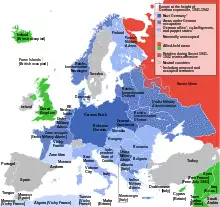
.jpg)




.jpg)

.jpg)


.jpg)


.jpg)










_(cropped).jpg)



.jpg)




_(tall).jpg)
_(2).jpg)





_(cropped).jpg)


.jpg)




.jpg)
_(cropped).jpg)






.jpg)
.jpg)




.jpg)



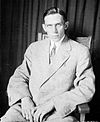



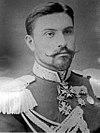

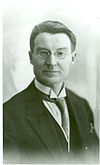
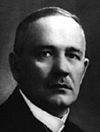

.jpg)
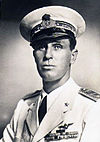

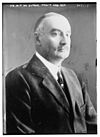
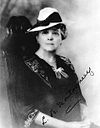



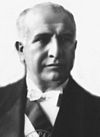
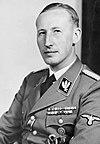

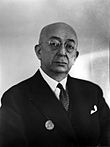

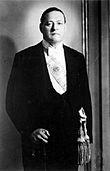

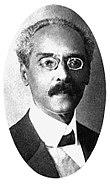

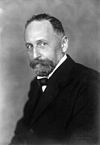
.jpg)
